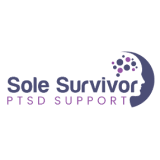This informal CPD article, ‘Harnessing the Power of Peer Support for PTSD Recovery’, was provided by Matt Shepley, Founder of Sole Survivor PTSD Support CIC. They have been offering peer-led trauma-informed peer support and training services to organisations and communities since 2018, as well as a trauma-informed consultancy for companies of all sizes.
Harnessing the Power of Peer Support for PTSD Recovery
Post-Traumatic Stress Disorder (PTSD) affects millions worldwide, often leaving individuals feeling isolated and overwhelmed by their symptoms. However, amidst the challenges, one of the most profound sources of strength lies in trauma-informed peer support. This form of support involves connecting with others who have experienced trauma, offering a unique and powerful avenue for healing amongst those with lived experience of the condition.
Understanding PTSD and Its Impact
PTSD can develop after experiencing or witnessing one or more traumatic events. Symptoms can include flashbacks, nightmares, anxiety, and emotional numbness, profoundly disrupting daily life. Many individuals with PTSD struggle to articulate their feelings or fears, leading to a sense of alienation from friends, family, and even themselves.
The Isolation Dilemma
Isolation is a common hallmark of PTSD. Survivors often withdraw from social interactions due to fear of triggering memories or because they believe others won't understand their experiences. This isolation can exacerbate symptoms, making recovery seem distant and unattainable.
The Role of Peer Support
Peer support breaks through this isolation by creating a safe space where individuals with PTSD can be amongst others without fear of judgment. Peers offer empathy born from shared experience, which can be more impactful than traditional therapeutic interventions. This mutual understanding fosters trust and validates emotions, crucial for rebuilding a sense of security and self-worth.
Benefits of Peer Support:
- Shared Understanding: Peers comprehend the nuances of PTSD, providing validation and reducing feelings of loneliness.
- Empowerment: Engaging with peers who are further along in their recovery can instil hope and inspire progress.
- Practical Advice: Peers often share coping strategies that have worked for them, offering practical tools for managing symptoms in real-life situations.
- Non-Judgmental Environment: Unlike some social circles, peer support groups prioritise listening and understanding, promoting acceptance and healing.
Types of Peer Support
Peer support can take various forms, including in-person support groups, online forums, and one-on-one connections facilitated by organisations or mental health professionals. Each format offers unique benefits, catering to different preferences and comfort levels.
Success Stories
Countless individuals have found solace and progress through peer support. Stories abound of veterans finding camaraderie, survivors of abuse rebuilding trust through shared narratives, and gang violence victims finding strength in collective resilience. These stories underscore the transformative power of peer connections in navigating the complexities of PTSD.
Challenges and Considerations
While peer support is profoundly beneficial, it's essential to recognise that not all support groups or interactions may be equally helpful. Some individuals may need time to find the right group or format that suits their needs. Additionally, peer support complements but does not replace professional therapy or medical treatment. It should be integrated into a comprehensive treatment plan where applicable and tailored to individual needs.
Conclusion
Peer support stands as a beacon of hope for individuals grappling with PTSD, offering empathy, understanding, and practical guidance on the road to recovery. By connecting with others who share similar experiences, individuals not only find validation but also reclaim a sense of belonging and resilience. As we continue to understand the multifaceted nature of PTSD, integrating peer support into mental health care frameworks becomes increasingly vital, ensuring that no one has to face their journey to recovery alone.
We hope this article was helpful. For more information from Sole Survivor PTSD Support CIC, please visit their CPD Member Directory page. Alternatively, you can go to the CPD Industry Hubs for more articles, courses and events relevant to your Continuing Professional Development requirements.













